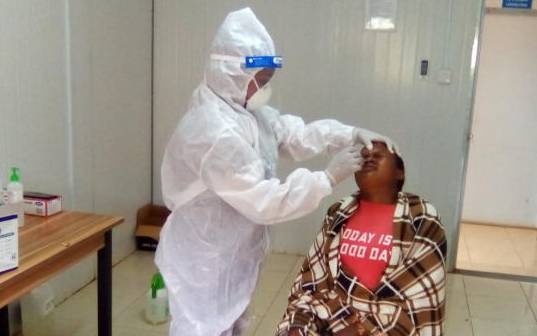×
The Standard e-Paper
Join Thousands Daily

Employees from Thwake Dam undergo mass Covid-19 testing aimed at preventing entry of the virus at Kenya’s biggest Sh63b project. [Stephen Nzioka, Standard]
Some residents of Old Town, Mombasa, were recently captured on social media complaining that they had been asked to be tested for Covid-19. While this news was received with mixed reactions across the country, testing remains critical in the management of the deadly pandemic.